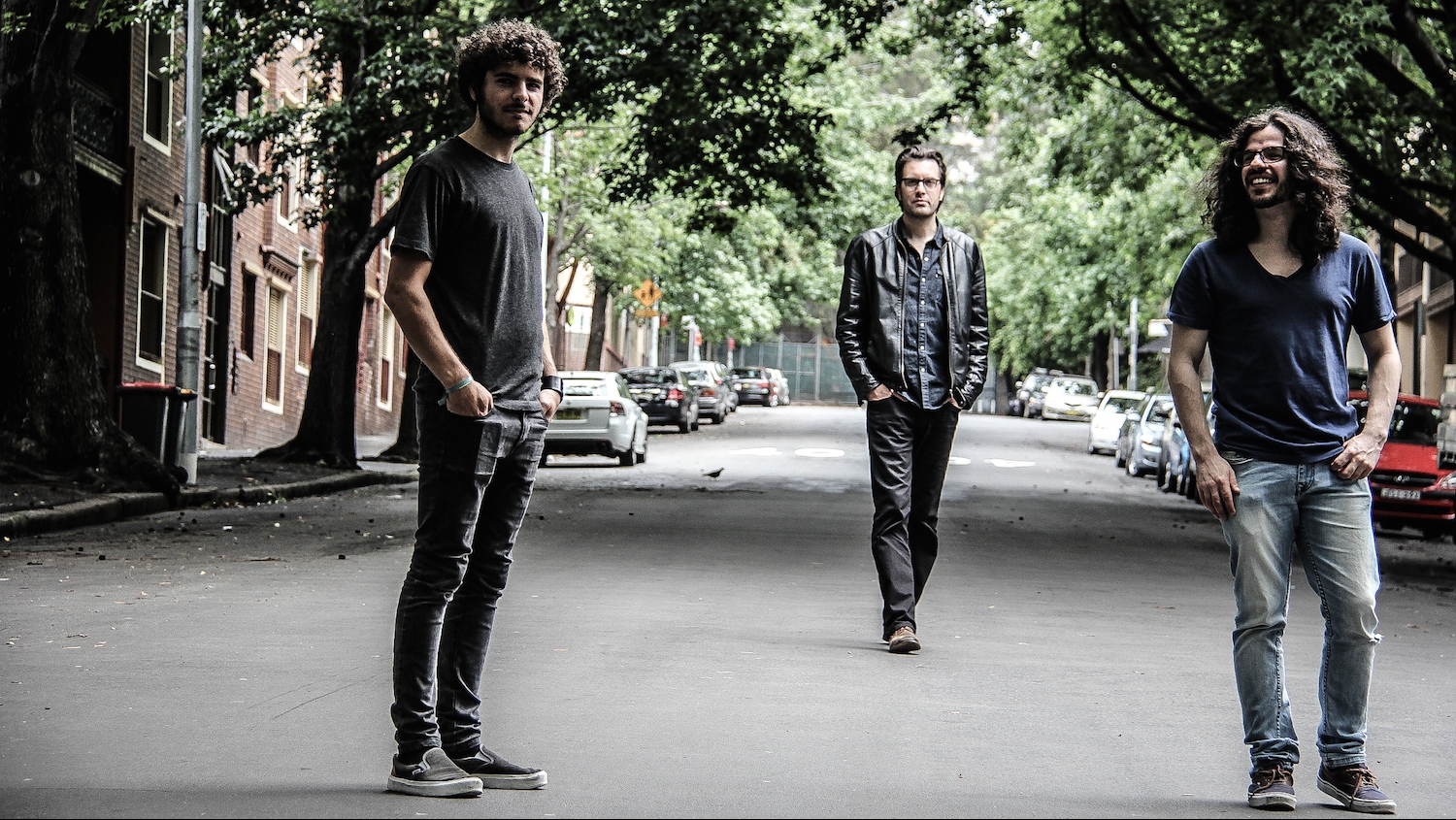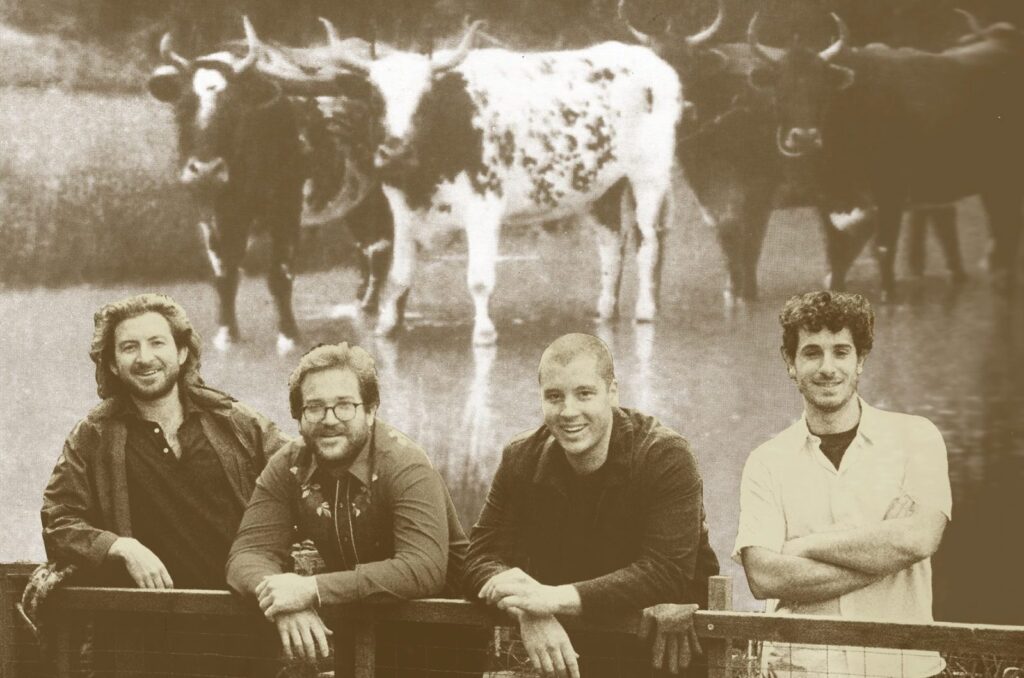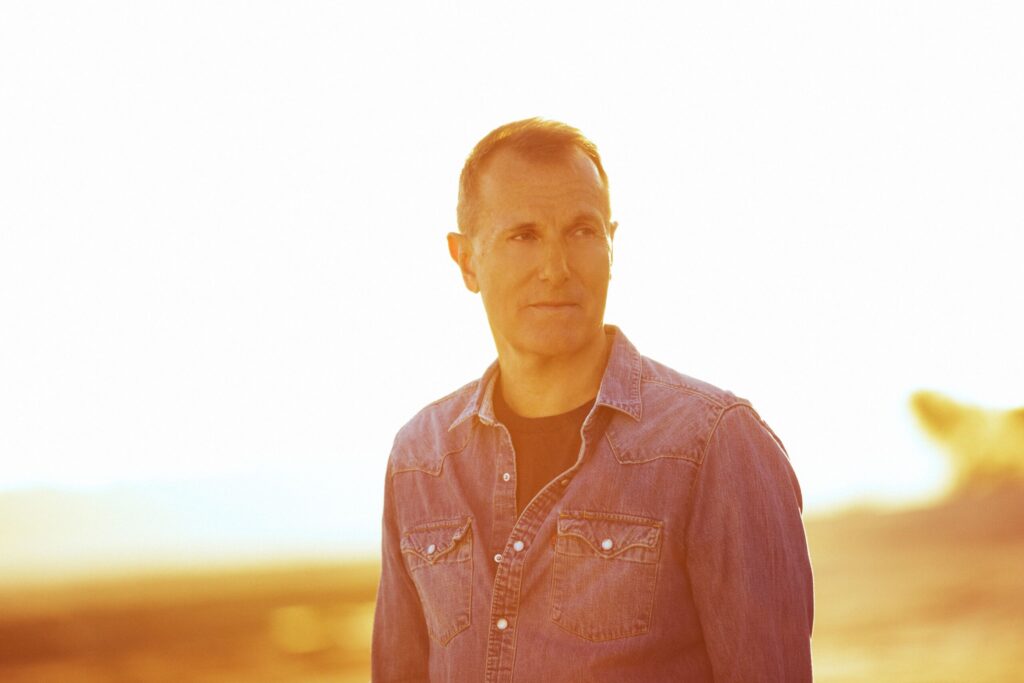“The first one came together just me by myself. It was just shortly after I quit my job as an architect,” Heeres says. “That was more trying to put something together and see if I could find a band that wanted to play along. Then about a year later when I had the band, we recorded a little EP, which was just five tracks. There have been a few lineup changes, but definitely we were working towards this, which is in my opinion a much more mature sounding record.”
Some fairly explicit musical touchstones shine through on this new LP. Bands like Kyuss and Soundgarden contribute to a groovy stoner rock feel, while the moments of clean, funk guitar playing are reminiscent of Red Hot Chili Peppers. While Heeres is the chief songwriter, each member’s input impacts on the overall sound.
“We try not to steer too much into a certain direction, and just let the influences that everybody has come through,” Heeres says. “For example the funky bits, I was listening a lot to James Brown at the time. I just love the guy. Everybody had their own influences, and quite different ones as well. The drummer was more into prog rock, doing quite odd rhythms and being very creative with the drums; myself, as I said, James Brown, Soundgarden definitely, Queens of the Stone Age, Nick Cave. That makes it quite rich, to let everybody put their own little bits in and see how we can cook up something nice.”
By virtue of being a three-piece, Magnus can fuse their respective influences without it becoming too uneven. Heeres values the three-piece configuration for a variety of reasons.
“A few years ago I went to see Queens of the Stone Age play at the Enmore here in Sydney,” he says. “They came with a whole band, it seemed like there were a hundred people onstage. There were a couple of songs where they played just three people and it just sounded so much bigger and spacier and more intense. So being a three piece is very much an intentional thing [for Magnus].”
The album was recorded according to some fairly distinct principles. Namely, the band tracked everything live, right down to the effects on the guitars, in order to create an experience comparable to a Magnus live show.
“We wanted to be quite raw and acoustic sounding,” Heeres says. “I think once you start down the road of doing separate takes and mixing them and editing them, the performance gets lost. And really the main thing as a band, you try to make it onstage as interesting and as [close as] possible to what you do on the record. So [the albumis] really what’s on the stage, bringing it into the studio and recording that experience.”
Wade Keighran (Wolf & Cub, ex-The Scare) recorded and mixed the album. By recording live, they wanted to avoid tweaking things in the mixing process. Though, some intervention was necessary, as the live recording set-up couldn’t quite capture the dimensions of their live sound.
“There are some [effects]. The funny thing is when you’re onstage, you’re in a big room and the three instruments really gel together, and that’s something that’s really hard to capture on a microphone. So you have to add something which gives back that atmosphere. But I think it’s pretty close to what we do onstage.”
Keighran contributed additional instrumentation to one track, but there was otherwise minimal overdubbing. Keighran took control of the mixing procedure, but not without Heeres watching on very closely.
“I gave him some feedback – I like to make notes, and he said it was the most detailed feedback that he’s ever had,” Heeres laughs. “But it worked really well because he was challenging me and I was challenging him. He mentioned to me that most of the time he just mixes it and bands are happy with it. For me I had quite a clear idea of what I wanted it to sound like.”
The band’s recording ethos was partially triggered by their distaste for over-produced music that vies for sonic perfection. Magnus well and truly fits into the rock music category, and Heeres observes a prevailing resurgence in ridgey didge Australian rock bands.
“Especially in the last year, you hear more and more rocky, more edgier music on triple j. From what I noticed this last ten years – I’ve only been in Australia for ten years – there was a lot of apathy, detuned guitars, don’t try to sing in key and don’t look like you want to be there. That was also for me a motivation to do this record and to do it the way we’ve done it. You have to be passionate about music and bring it out there and give it some balls and let people have an opinion on it – love it or hate it, but evoke something.”
BY AUGUSTUS WELBY







